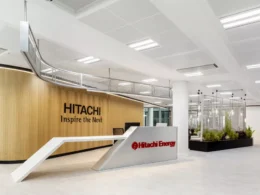IBM in collaboration with Ecosystm, has released a significant new whitepaper titled “Sustainability Technology Guide for Executives,” aimed at guiding business leaders in the Asia Pacific region to harness the synergy between technology and business to drive sustainable transformation.
According to Ecosystm data, many organisations in the Asia Pacific region are still in the early stages of integrating sustainability into their core operations, with only 21% adopting a truly strategic approach. The primary challenge lies in data management, as achieving a comprehensive, real-time, AI-driven view of environmental impact and progress requires a solid baseline of ESG data.
The whitepaper identifies the top challenges faced by Asia Pacific organizations: integrating automation and AI system data with enterprise data (48%), collecting data from multiple internal systems (45%), and identifying the right data for reporting requirements (42%). An IBM Institute for Business Value study also found that only 4 in 10 organisations can automatically source sustainability data from key systems like ERP, CRM, and energy management. To build credibility, trust, and strong relationships with stakeholders, transparent, verifiable, and audit-ready data across the value chain is crucial.
Hans Dekkers, General Manager of IBM Asia Pacific said, “Asia Pacific organisations struggle to turn the sustainability agenda into a competitive business advantage, as incorporating sustainability data and insights into operational improvements requires high-quality data and robust governance capabilities that underpin trust. While generative AI can be a game changer for data-driven sustainability, leveraging hybrid cloud to integrate data and facilitate interoperability across organizations is key to enabling sustainability at scale. Technology is vital for operationalizing sustainability, and IBM solutions and services are assisting organizations throughout the region in harnessing the power of data and AI to achieve a positive sustainable impact that also enhances business value.”
The whitepaper highlighted that regulatory pressure is not the primary driver of sustainability in the Asia Pacific; instead, ethical considerations, financial benefits, and a proactive approach to the evolving landscape lead the way. Also, a structured approach is necessary for leveraging technology in sustainability efforts, with 64% of organizations seeking tech advisory firms to define their sustainability roadmap.
Additionally, modernising technology is a crucial step, with 53% of organisations updating to more efficient infrastructure to reduce their carbon footprint. The whitepaper also highlighted that bridging the gap between IT and business functions is essential, with the entire leadership team taking ownership of the sustainability agenda, not just the CEOs and IT departments. Currently, 70% of CEOs in Asia Pacific organisations are the primary stakeholders driving the sustainability vision, while only 22% have a dedicated Chief Sustainability Officer (CSO) showing the need for the entire leadership team to take ownership of the sustainability agenda, with the CIO championing the use of technology, the CFO integrating sustainability into financial planning, and the COO aligning operational efficiency with sustainability goals.
“Organisations that embrace tech-led sustainability decisions can turn sustainability from a cost centre into a value driver, ensuring long-term business success while leaving a positive environmental legacy. By following the three-layered tech-led sustainability framework and the checklist in this guide, Asia Pacific leaders can create a compelling, data-driven sustainability narrative that inspires action, manages risks, and builds stakeholder trust,” said Sash Mukherjee, VP Industry Insights, Ecosystm.






















